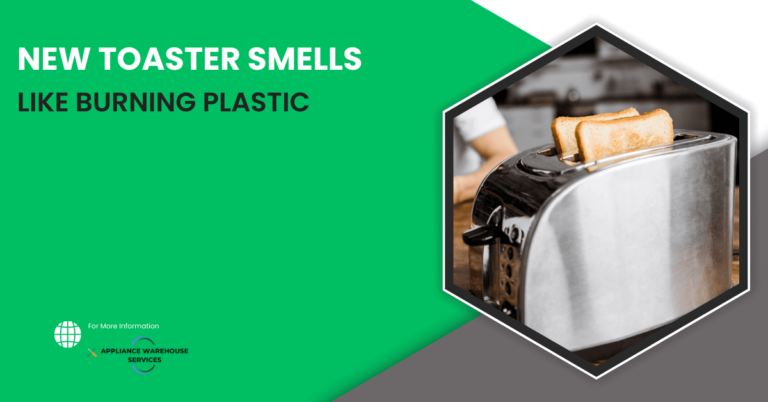Short answer: The self-clean oven smell is typically not harmful but can be unpleasant. Adequate ventilation and following safety guidelines can help reduce any discomfort.
The self-cleaning feature in modern ovens has become a popular convenience for homeowners, promising a hassle-free way to eliminate baked-on food residues and grease. However, the process of self-cleaning can come with its own set of challenges, most notably the distinctive and sometimes overwhelming self-clean oven smell that accompanies it. In this discussion,I will explore the causes of this odor, potential health concerns, and practical tips on how to minimize it, ensuring a more comfortable and safe experience while maintaining a sparkling clean oven.
What Causes Self-Cleaning Oven Smell?

A self-cleaning oven can emit an unpleasant odor during the cleaning process. This smell is usually the result of several factors:
- Burnt Food Residue: Self-cleaning ovens use extremely high temperatures (usually around 800 to 900 degrees Fahrenheit or 427 to 482 degrees Celsius) to burn off food residue and grease from the oven’s interior surfaces. This process can create a strong odor as it incinerates any leftover food particles or spills.
- Burnt Grease and Oils: Over time, grease and cooking oils can accumulate on the oven’s walls, racks, and heating elements. During the self-cleaning cycle, these substances are subjected to intense heat, causing them to break down and emit odorous fumes.
- Food Spills: Any lingering food spills, crumbs, or splatters inside the oven can contribute to the smell as they are charred and carbonized during the cleaning process.
- Dust and Debris: Dust, crumbs, and other small debris that may have settled inside the oven can also be burned during the self-cleaning cycle, adding to the odor.
- Chemical Residue: Some self-cleaning ovens use pyrolytic cleaning, which involves heating the oven to such high temperatures that any residues are reduced to ash. Some cleaning agents or coatings used in self-cleaning ovens can emit odorous fumes as they break down during this process.
How To Reduce The Self-Cleaning Oven Smell?
Reducing the self-cleaning oven smell can make the process more comfortable for you and your household. Here are some tips to help minimize the odor:
- Ventilation: Proper ventilation is key to reducing oven odors. Open windows and doors in the kitchen to allow fresh air to circulate. If your oven has a ventilation fan, turn it on during and after the cleaning cycle to help expel odors.
- Use an Exhaust Fan: If your kitchen has an exhaust fan or range hood, turn it on to help remove odors and fumes. Make sure it vents to the outside rather than recirculating the air.
- Place Bowls of Odor Absorbers: Set out bowls of natural odor absorbers like vinegar, baking soda, or coffee grounds inside the kitchen and near the oven. These substances can help absorb and neutralize odors.
- Run a Pre-Cleaning Cycle: Before starting the self-cleaning cycle, run a pre-cleaning cycle with a mixture of water and vinegar or water and lemon juice. This can help loosen and soften any stuck-on food or grease, making it easier to clean and potentially reducing the intensity of odors during the self-cleaning cycle.
- Remove Large Debris: Before initiating self-cleaning, manually remove any large food debris or excessive grease from the oven. This can help reduce the amount of material that needs to be burned off, thereby minimizing the smell.
- Schedule Cleaning at a Convenient Time: Plan to run the self-cleaning cycle at a time when you can be out of the house or when outdoor ventilation is possible, such as on a mild day.
- Clean the Oven Regularly: Regular maintenance can help prevent the buildup of excessive grease and food residue, which can lead to stronger odors during self-cleaning cycles. Clean your oven more frequently using mild oven cleaners or natural solutions to keep it in better condition.
- Follow Manufacturer’s Instructions: Always adhere to the manufacturer’s guidelines for operating your self-cleaning oven. Using the appliance as recommended can help minimize odors and ensure safety.
- Use Odor-Neutralizing Products: Some household products and air fresheners are specifically designed to neutralize odors. You can use these products in the kitchen as needed to help mask any lingering smells.

Is The Self-Clean Oven Smell Harmful?
The self-clean oven smell is generally not harmful to most people when used as directed. However, it can be unpleasant and may cause temporary irritation, especially for individuals with respiratory sensitivities or allergies. To minimize any discomfort, it’s crucial to ensure proper ventilation by opening windows or using exhaust fans during and after the cleaning cycle, remove large food debris before self-cleaning, and follow the manufacturer’s instructions for safe operation. If you have specific health concerns or sensitivities, it’s advisable to take extra precautions, such as staying out of the kitchen until the odors have dissipated, and consulting with a healthcare professional if needed.
FAQs
Is it ok to self-clean an oven overnight?
It’s generally not recommended to run a self-cleaning cycle overnight. It’s safer to do it during waking hours when you can monitor the process and ensure proper ventilation. Self-cleaning ovens reach very high temperatures, and running the cycle while you sleep can pose potential risks.
Is self-cleaning oven safe for babies?
While self-cleaning ovens are safe when used correctly, it’s advisable to keep babies and young children away from the kitchen during and after a self-cleaning cycle. The high temperatures and odors generated during the process can be uncomfortable or potentially harmful to infants, so it’s best to take precautions.
Is it normal for an oven to smell during self-cleaning?
Yes, it is normal for an oven to emit odors during the self-cleaning cycle. The high temperatures used in self-cleaning can cause food residues, grease, and other particles to burn off, producing strong odors. Adequate ventilation and following safety guidelines can help mitigate the smell.
Can I clean my oven with baking powder?

Baking powder is not typically used as the primary cleaner for ovens. Baking soda, on the other hand, is commonly used for oven cleaning. You can create a paste by mixing baking soda with water and applying it to the oven’s interior surfaces. Allow it to sit for several hours or overnight before wiping it away. However, for heavy-duty cleaning or tough stains, you might need a specialized oven cleaner. Always follow the manufacturer’s recommendations for cleaning your specific oven model.
Conclusion
Self-cleaning ovens offer convenience in maintaining a clean cooking appliance, but users should be aware of potential safety concerns and odors associated with the self-cleaning process. While the self-clean oven smell is generally not harmful, it can be unpleasant and may irritate those with respiratory sensitivities. Proper ventilation, caution around infants and young children, and following manufacturer guidelines are essential practices to ensure the safe and effective use of self-cleaning ovens.






